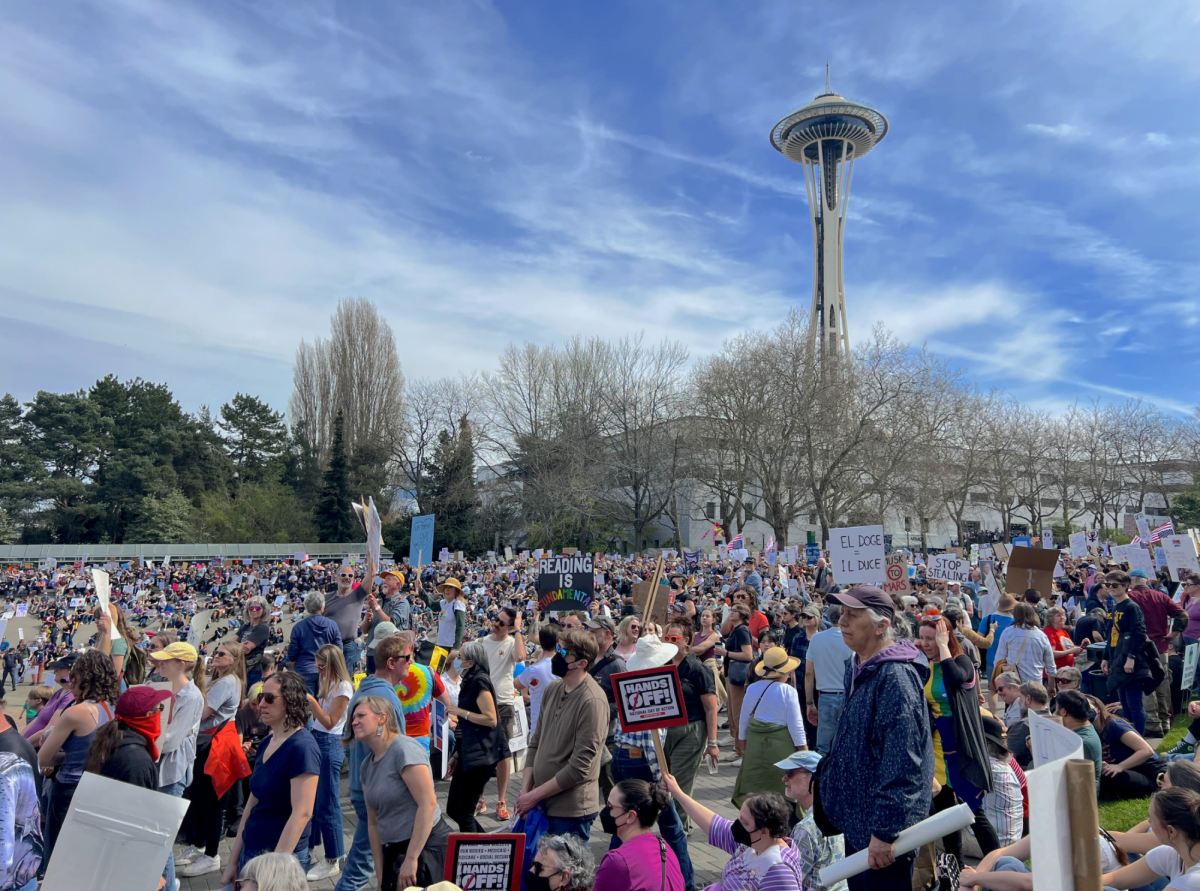Over the course of the last couple weeks, Seattle University has hosted several events focused on issues and oppression faced by LGBTQ+ individuals around the world as well as celebrating the rights and lives of these folks. Students gathered on Nov. 16 for a Queer People of Faith Brunch, and on Nov. 20, when a vigil was held for International Transgender Day of Remembrance.
After introductions at the Queer People of Faith Brunch, students discussed what helped them to feel divine presence. The discussion was not limited to religion and spirituality as one student who identified as a “raging atheist” described their passion for dancing. Others talked about feeling a connection to nature, the joy of a good hug and small acts of kindness and human connection. One common theme was the importance of allowing vulnerability and creating inclusive and supportive spaces.

Monday, November 20th, is Transgender Day of Remembrance 2017; which is where we honor the lives that have been lost due to violence against the transgender community.
“You can hope for a creative, tender and loving space but you can’t make that happen. These people created that space,” said Marilyn Nash, a Campus Minister for Ignatian Spirituality, who helped coordinate the brunch. The room was full of smiling faces, laughter and conversation.
“This felt like just the tip of what is possible,” said Nash. She hopes that similar events will be able to happen in the future since the brunch was so successful. A few days after the brunch, the focus switched from individual experiences and struggles of Seattle U students to the broader scale of folks around the world.
Nov. 20 was International Transgender Day of Remembrance, and a group of students gathered on campus by the reflection pool outside the Chapel of St. Ignatius. The rain was pouring down and heads were turned downward as the melodic strumming of a guitar resonated through the air.
After this, the names of the 24 known transgender individuals who had been murdered in the last year were read aloud. Three of these individuals were teenagers, and a large portion were women of color. Many of the victims experienced an intersection of racism, sexism, homophobia and transphobia, which led to many of these hate crimes.
The bell at the chapel rang 24 times to honor these individuals, and with the rain still pouring down, students set colorful flowers adrift in the reflection pool to honor the lives of both the living and deceased transgender folks who face oppression and violence.
After the vigil, a group headed to the student center to sit in the hearth and have a discussion over warm cups of tea. The Director of the Gender Justice Center at Seattle U, Haleema Bharoocha, was present in the hearth, and she shared some information about what the group does.
“The Gender Justice Center is a student-led organization that provides emotional, social and tangible support for women, trans folks and gender-queer students, especially students of color, on SU’s campus,” Bharoocha said. “As a center, we are focusing on creating a space where anyone can come to learn about current issues and ways to resist and to receive support without facing judgment for not knowing or not having resources.”
The Gender Justice Center is a great resource for members of the LGBTQ+ community, but the support shouldn’t stop here. Everyone can be an ally in the fight for justice for every member of the community, even those who do not identify as LGBTQ+. It can be hard to balance being supportive and overstepping boundaries when trying to be an effective ally to folks of all backgrounds and identities, but Bonsell has some advice.
“Don’t ask a trans person a question you wouldn’t ask a cis person, and be respectful of pronouns,” he said. “But if you do slip up with pronouns, instead of apologizing 18 million times, just quickly say sorry and try not to do it again. You don’t need to make a huge deal out of it.”
Another important aspect of being a good ally is to avoid stereotyping and imposing gender binaries.
“Don’t impose gender binaries on trans people,” Bonsell said. “A lot of people grow up forced into these stereotypes. I grew up as a girl and I have more feminine interests because of this, so to expecting me to only be into masculine things is not only sexist and transphobic, but kind of stupid because stereotypes about the perceived binaries aren’t real.”
There may be a long journey ahead, but students can find hope through events such as the Queer people of Faith Brunch, the Transgender Day of Remembrance vigil, having honest discussions with different folks and striving to be an ally to all.
Bailee may be reached at
bclark@su-spectator.com








